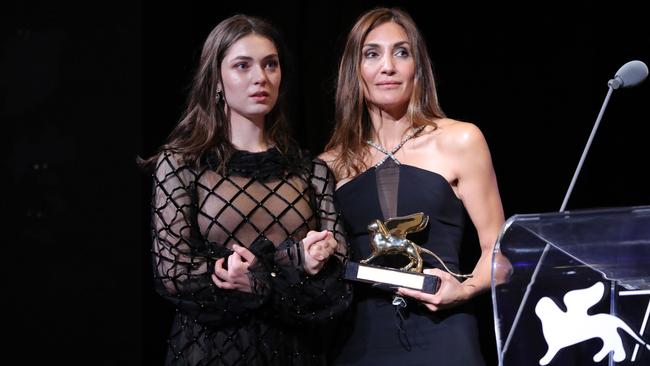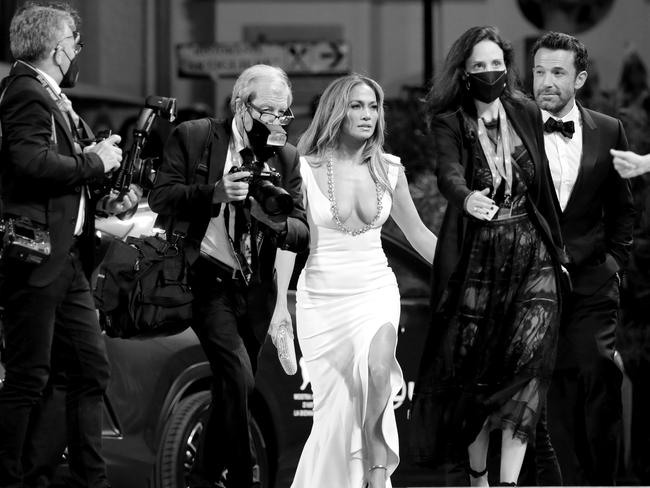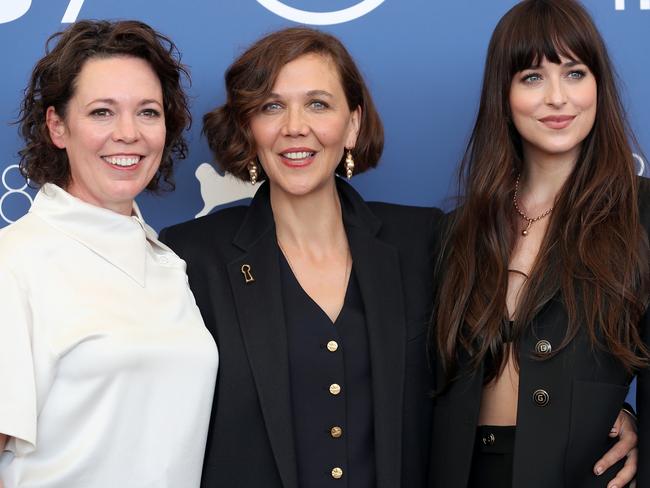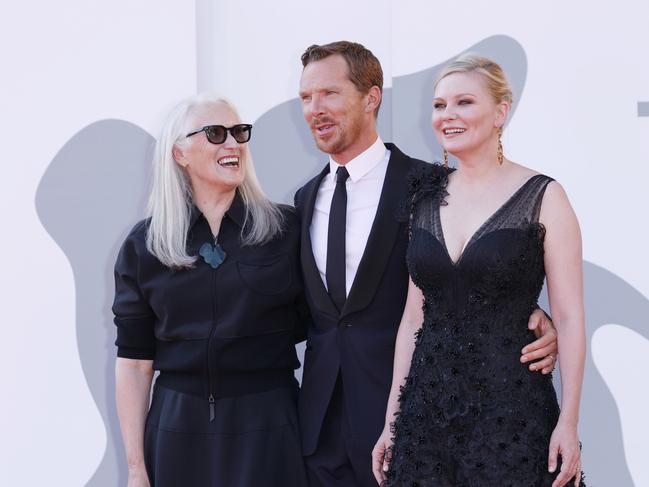Bennifer, #metoo and abortion: current themes at Venice
Jane Campion was pipped at the post for the Festival’s Gold Lion honour in favour of Audrey Diwan’s film about a more political subject.

Talk about a revolution.
Not only have women directors taken out the big prizes at the Venice International Film Festival this year, but the spotlight shone on gender issues too.
Audrey Diwan won the prestigious Gold Lion for her French film, Happening; Jane Campion took the Silver Lion for best director, and Maggie Gyllenhaal best screenplay for The Lost Daughter, which she also directed.
It’s pretty much a clean sweep for the ladies, aside from the Grand Jury Prize, which went to Paolo Sorrentino for The Hand of God, but that’s universally acknowledged as a runner-up award.
Then there was Pedro Almodovar’s opening film, Parallel Mothers, about “imperfect mothers”, for which Penelope Cruz won best actor and, closing the festival at the weekend, The Last Duel, a #metoo film for the medieval era written by Matt Damon and Ben Affleck. Affleck, who stormed the red carpet with his long lost love, Jennifer Lopez, described The Last Duel as a “feminist” film — or he might have described himself as a feminist, there were conflicting reports from the scene, where journalists were evidently mostly distracted by Bennifer. Finally! We can imagine how the industry must have felt in the Seventies when Elizabeth Taylor and Richard Burton reunited.

But back to the winners.
Before the awards ceremony, everyone seemed to think Campion had the Gold Lion in the bag for The Power of the Dog, her return to feature film-making after an 11-year break.
Even when she didn’t win, her peers gushed around her so much you would have thought it was her night. Gyllenhaal acknowledged Campion in her own acceptance speech, and Diwan even joked about swapping her superior award with the venerated Kiwi’s inferior one.
There was also this delightfully awkward exchange, reported by Helen Barlow, our correspondent on the ground in Venice.
Gyllenhaal (to Campion): “ The Piano (Campion’s 1993 Cannes Palme d’Or-award winner) was one of the first movies I ever saw that was not just directed by a woman, but directed by a woman speaking in the language that came from you. Women have had to fit themselves into film language in a way that made it difficult to express themselves … And when I saw that movie, I thought, ‘I don’t have to translate this’. That felt like the Berlin Wall coming down.”
Campion (chuckles): “That is very sweet but it’s interesting to think that Ada, the lead character in The Piano, is mute, nobody’s listening.”
Gyllenhaal: “Well, but that’s part of it. That’s what we relate to, you know.”
Campion: “I think this moment is something to celebrate. I really do. I’m really proud of all the women filmmakers.”
Diwan: “I do agree with Maggie, you opened the door.”
Jury president, Oscar winning director Bong Joon-ho, in turn acknowledged Campion as a “giant” of the cinema.
So why, Barlow asked Bong after this orgy of esteem, didn’t Campion win?

Praised by Variety as “softly poised but packing a wallop”, Diwan’s film is an adaptation of the novel by Annie Ernaux. It follows a bright university student in the early 1960s who finds her emancipation threatened when she falls pregnant, with no means of having an abortion in France, where it is illegal at the time.
The film’s star, newcomer Anamaria Vartolomei, joined Diwan on the stage when she received her award.
“It’s not like there’s a hierarchy in awards, we just wanted to celebrate as many films as possible,” Bong explained to Barlow, somewhat bafflingly, because of course there is a hierarchy and everyone knows that gold beats silver.
Bong was more frank when he went on to say “many of the films happen to be made by female filmmakers and that was a good thing. We were interested in this film’s ability to capture the current times and current themes”.
Jury member Cynthia Erivo took it a step further to say “the women on the jury were drawn in our own separate ways to the film, to its beauty, to the subject …”.
It all begs the question, how much should “subjects” and “current themes” have to do with an award for filmmaking prowess?
A disclosure I probably should have made earlier: I haven’t seen any of the winning films from Venice. Perhaps the Diwan film is superior in all respects — although that’s not what the judges seem to be saying.
Does any of this even matter when Campion was recognised a prestigious award of her own anyway (if not the most prestigious award)?
Well, yes.
Campion, for all her trailblazing, did not return to cinema with a film about women. Far from it. Her subject is an adaptation of Thomas Savage’s 1967 novel about two brothers on a Montana ranch. Campion’s star, Benedict Cumberbatch, describes his own character, one of the brothers, as “toxic”.
The film’s female lead, Kirsten Dunst — for all the Old Hollywood glamour she evoked in a black ballgown on the red carpet — is largely unacknowledged in any of the reviews I read of the film.

On the other hand, as the Jury members emphasise, the “current theme” of Diwan’s film is monumentally important. The timing is indeed stark, with reproductive rights under threat, most notably in Texas, which has moved to punish women for having an abortion. Of the countless words written by women in dismay over the Texas ban, Caitlin Moran’s in The Times stands out as among the most powerful — a woman’s right to choose, she wrote last week, is now any Texan’s right to choose for her.
Accepting her award for Happening, Diwan said: “I did this movie with anger, with desire, with my belly, my guts, my heart and my head.”
Asked about the changes for women in the industry, she said: “It’s not us who are making the progress … it’s the way the world is welcoming films by women that is changing the industry, and festivals and providing women with opportunities to express themselves.”
This is a fantastic response, it underscores that women in film are doing what they have always done; making great art with their great talent. It’s the world that is catching up.
But it holds true only so long as women filmmakers are freely encouraged to tell whatever stories they want, and their films are judged on their merits, not their politics.
The only way to guarantee the march toward equal recognition and opportunity continues unimpeded is to ensure that, no matter what, the best woman always wins.

